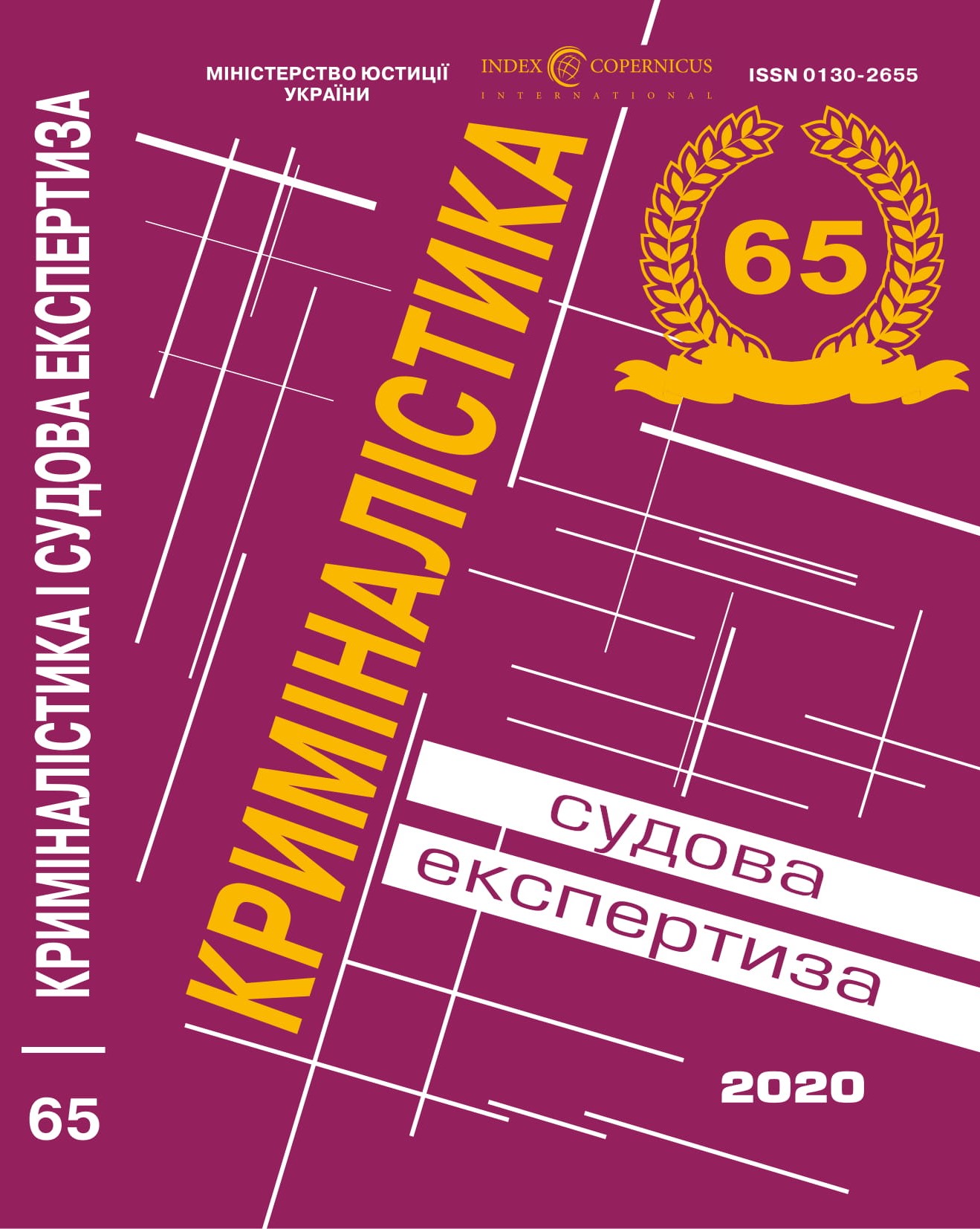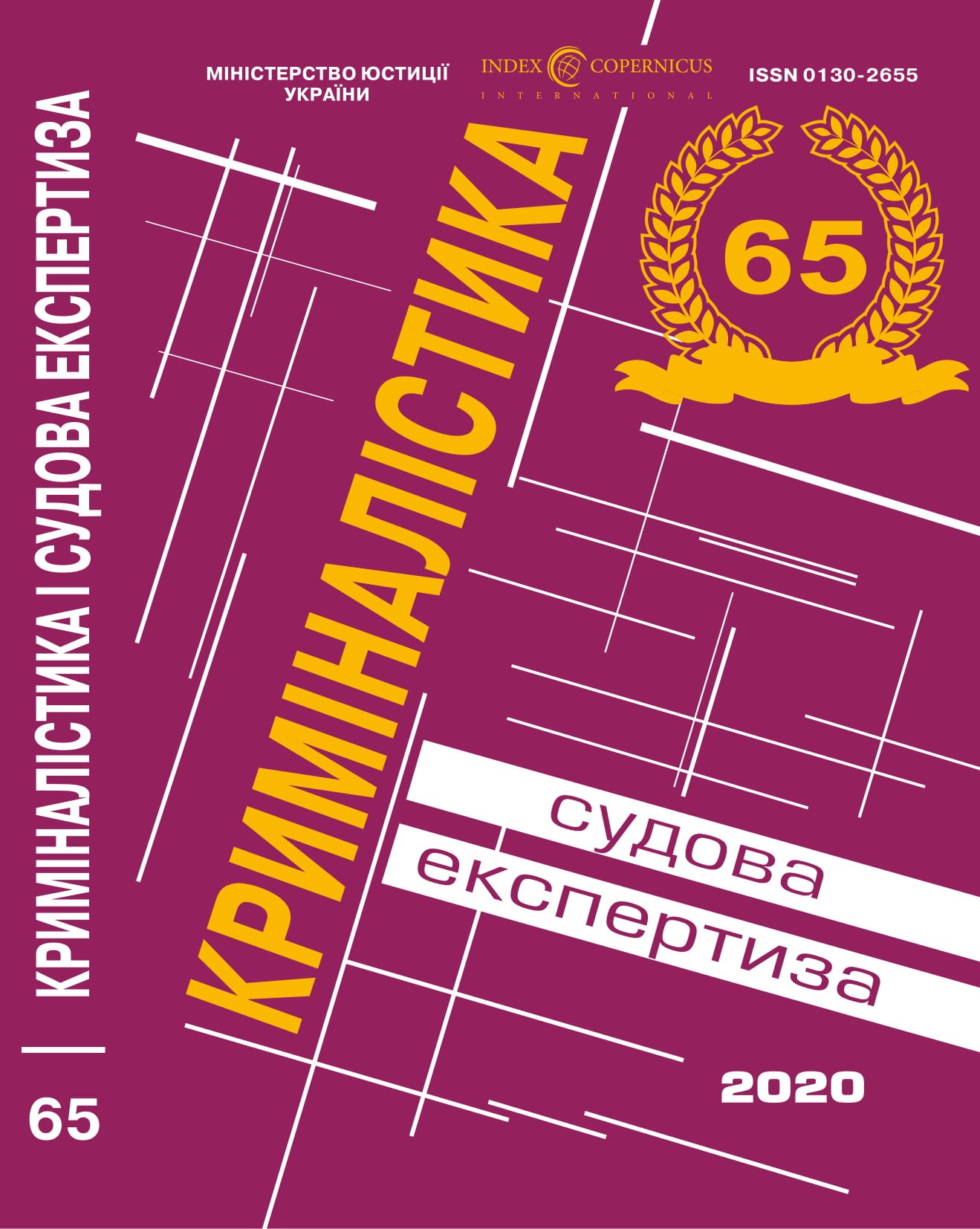DOI: https://doi.org/10.33994/kndise.2020.65.13
А. Poltavskyi
The article deals with the results of the research work “The development of methodological instruction “Documentation quality management systems of state specialized institutions providing forensic expert support for justice”. It analysis the international standards of quality management systems; international standards that provide supporting information to institutions, enterprises, and organizations implementing quality management systems; international standards and other documents regulating requirements in certain areas of professional activity.
According to the results of the analysis, for the first time were classified the documents of the quality management systems of state specialized institutions providing expert support for justice and they are listed below.
- Documents by its types: – defined by international, regional, national regulatory documents (in particular, standards, codes of practice, technical specifications, policies and guidelines for quality, procedures, methods, standard operating procedures, operating instructions, etc.); – developed in Ukraine by authorized bodies of public authorities and administration (in particular, laws, by-laws and regulations (in particular, decrees, regulations, instructions, provisions, instructions, etc.); – developed by international organizations involved in standardization processes (ILAC, ENFSI, ASTM, etc.): guidelines, best practices manuals, etc.; – developed by institutions within the framework of their accreditation: policies and guidelines for quality, procedures, methodologies, standard operating procedures, instructions, etc.
- Documents according to its use from the point of view of regulatory or regulatory and methodological framework of certain segments of quality management systems, which regulate requirements to: – administrative activities of quality management systems (for example, procedures); – conducting expert research – the technical activities of quality management systems (for example, examination procedures, standard operating procedures).
- Documents according to its impact on quality management systems: – external documents – laws, standards, codes of practice, technical specifications, regulations, instructions, etc., developed outside the institutions with an implemented quality management system; – internal documents – policies and goals in the field of quality management; quality guidelines; documented procedures and methodologies; standard operating procedures; manuals, operating procedures; quality programs; technical specifications; lists of control questions, determination of competence, reports (including inspection or inspection certificate, sampling, etc.), statement of conformity to specification or standard, certificate of calibration, logs, protocols (including tests), forms, etc.
- Documents according to its hierarchy, starting from international and regional standards, codes of established practice, technical specifications, including harmonized in Ukraine, proper national standards, codes of established practice, technical specifications, other regulatory legal acts of the state, guidelines of the quality system, passports of the conformity assessment body, areas of accreditation, management system procedures, research methodologies (examinations), operating procedures for staff involved in the accreditation areas of institutions, completing the forms documentation, etc. The results of the research work will be implemented when establishing the documentation systems within the framework of accreditation of institutions providing expert support for justice, in compliance with the requirements of international standards of quality management systems, as well as in updating the documentation systems of already accredited institutions.Key words: classification of documents, documentation, quality management systems, expert support for justice.


